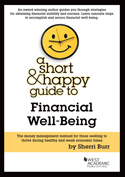by Sherri Burr
In our advanced technological age, we are bombarded by the latest gadgets for everything from appliances to voice recording apps, all claiming to make lives more efficient. But do they?
This question occurred to me after two home appliances broke, and I replaced them with “high efficiency” models. The new washing machine included a sensing device that calculated the amount of water it needed. Since it had a glass top, I watched the machine twist the load back and forth before it turned on the water. Although I had piled in clothes to reach the top of the tub, the machine added water to fill only about a quarter of its capacity. Eighty minutes later a load was finished, yet several items had dry spots. A load of whites took two hours, and I tricked the machine into filling up the tub by first bleaching clothes in a bucket, which made them heavier.
My initial reaction was astonishment. The machine took nearly three times as long to wash loads, and it didn’t get them as clean as my 1989 Kenmore machine that went to washing machine heaven after three attempts to fix it failed to produce a functional apparatus. I questioned the term “high efficiency,” and realized it only referred to the machine’s miserly water use. When it came to electricity, my bill would go up because it now took nearly all day to wash four loads of laundry, instead of two hours. When I went back to the store, the clerk questioned whether I had loaded the machine correctly. I thought, given the cost, the machine should have loaded itself. I requested the store pick up the machine and return my money before purchasing a non-high efficiency machine that allowed me to set water levels, and clean loads in half the time.
I share this story to challenge writers to question whether the new technology in their lives is an advance or a hindrance. Are we better off interviewing subjects and typing our notes on our laptop at the same time? Are we better off interviewing subjects and exclusively using our iPhone’s or iPad’s Siri to record the notes?
As someone who has used technology to her detriment in interviews, I submit that both questions must be answered with “no.” I interviewed someone and placed my “iDevice” on the table to record the conversation, while I actively listened and took notes on a paper pad. Thank goodness I did the latter because Siri recorded gibberish. I learned the hard way with voice-recognition software that if it doesn’t recognize the nuances in a person’s speech patterns, it may not accurately translate the person’s sentences.
The other problem I’ve found with recording devices is that subjects are intimidated by them. After getting nothing from a former bachelor from the television show The Bachelor, I put away the recording device. He immediately started talking. Since I didn’t want to interrupt the flow of the conversation, I just actively listened. The minute we finished, I ran to my car and wrote everything I could remember. I went to bed that night thinking I had nonsense, but awoke the next morning with a complete story organized in my head. My subconscious had sorted out the text while I slept.
In a law class simulation, I asked four students to role play as clients and lawyers. In the first group, the lawyer wanted to use his iPad to take notes. As the interview progressed, he didn’t use his iPad once. Rather, he focused on the client’s pre-interview sheet to ask questions. Because he was reading from the sheet, he didn’t observe his client. In the second demonstration, the law student used no electronic device and, even though he had the pre-interview sheet, he focused on talking and listening to the client. The second interview was more effective.
My final technology concern focuses on studies demonstrating that students who type their lecture notes on computers produce more complete notes but do not processes the material as well and do worse on exams. Other studies have proven that reading material on electronic devices leads to less recall of the material learned.
Thus, before you ditch your paper products in favor of electronics, think about whether they will advance or hinder the cause of obtaining effective interviews and learning material. Those who feel they are listened to will tell more. Look directly at interviewees, and actively tune your ears to capture all that you can from them.
 Sherri Burr is the Regents’ Professor of Law at the University of New Mexico School of Law where she teaches Entertainment Law, Intellectual Property Law, and Art Law. A graduate of Mount Holyoke College, Princeton University, and the Yale Law School, she has authored or co-authored 20 books, including A Short and Happy Guide to Financial Well-Being (West Academic, 2014). Sherri is also a long-time member of SouthWest Writers and a regular contributor to the organization’s newsletter SouthWest Sage.
Sherri Burr is the Regents’ Professor of Law at the University of New Mexico School of Law where she teaches Entertainment Law, Intellectual Property Law, and Art Law. A graduate of Mount Holyoke College, Princeton University, and the Yale Law School, she has authored or co-authored 20 books, including A Short and Happy Guide to Financial Well-Being (West Academic, 2014). Sherri is also a long-time member of SouthWest Writers and a regular contributor to the organization’s newsletter SouthWest Sage.



As always, Sherri, I enjoyed learning from your article, especially since I’ve had similar experiences.
Great post on technology and how it affects our lives. I believe we have lost the skill to communicate at all. Perhaps it’s time we all step back and think about things. Thanks for sharing.
Thanks for sharing, Pat. I am not surprised by your story.
Sherri